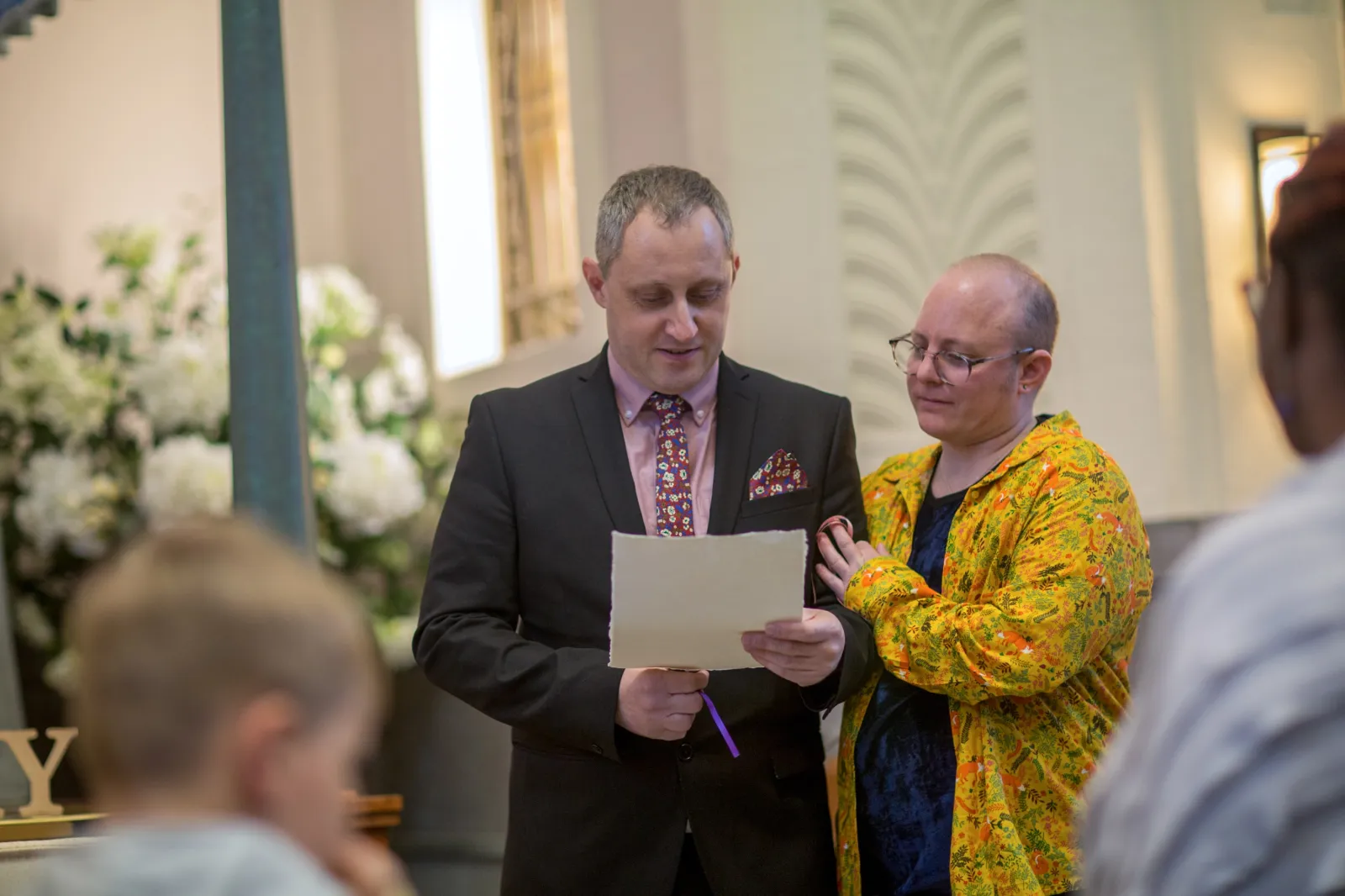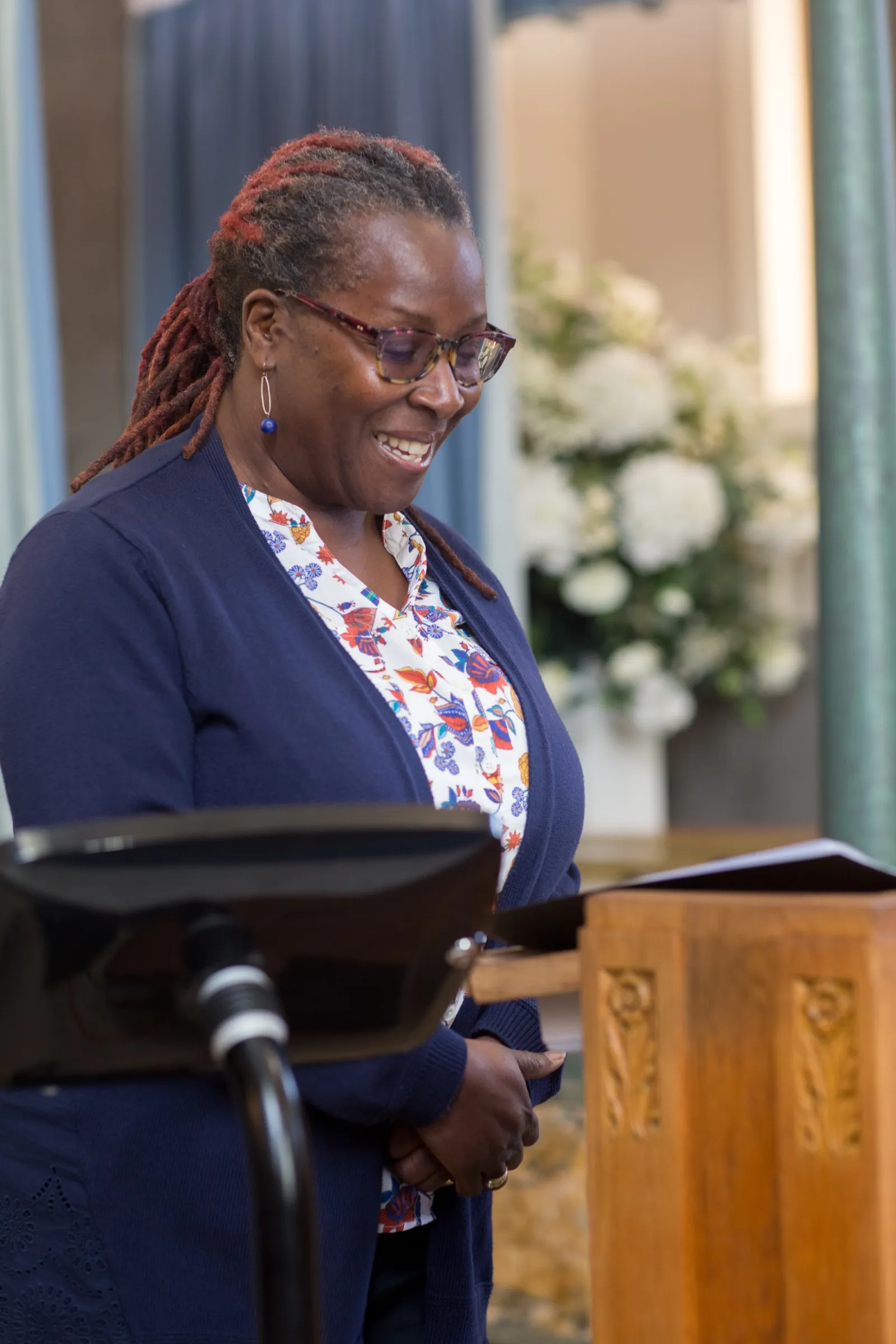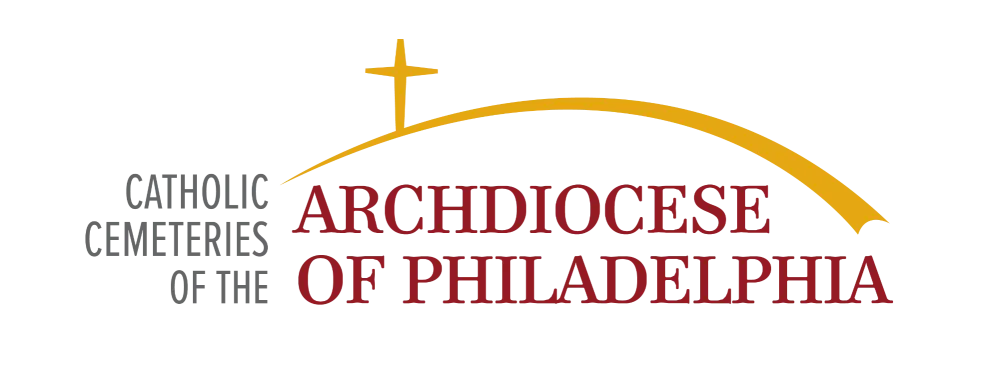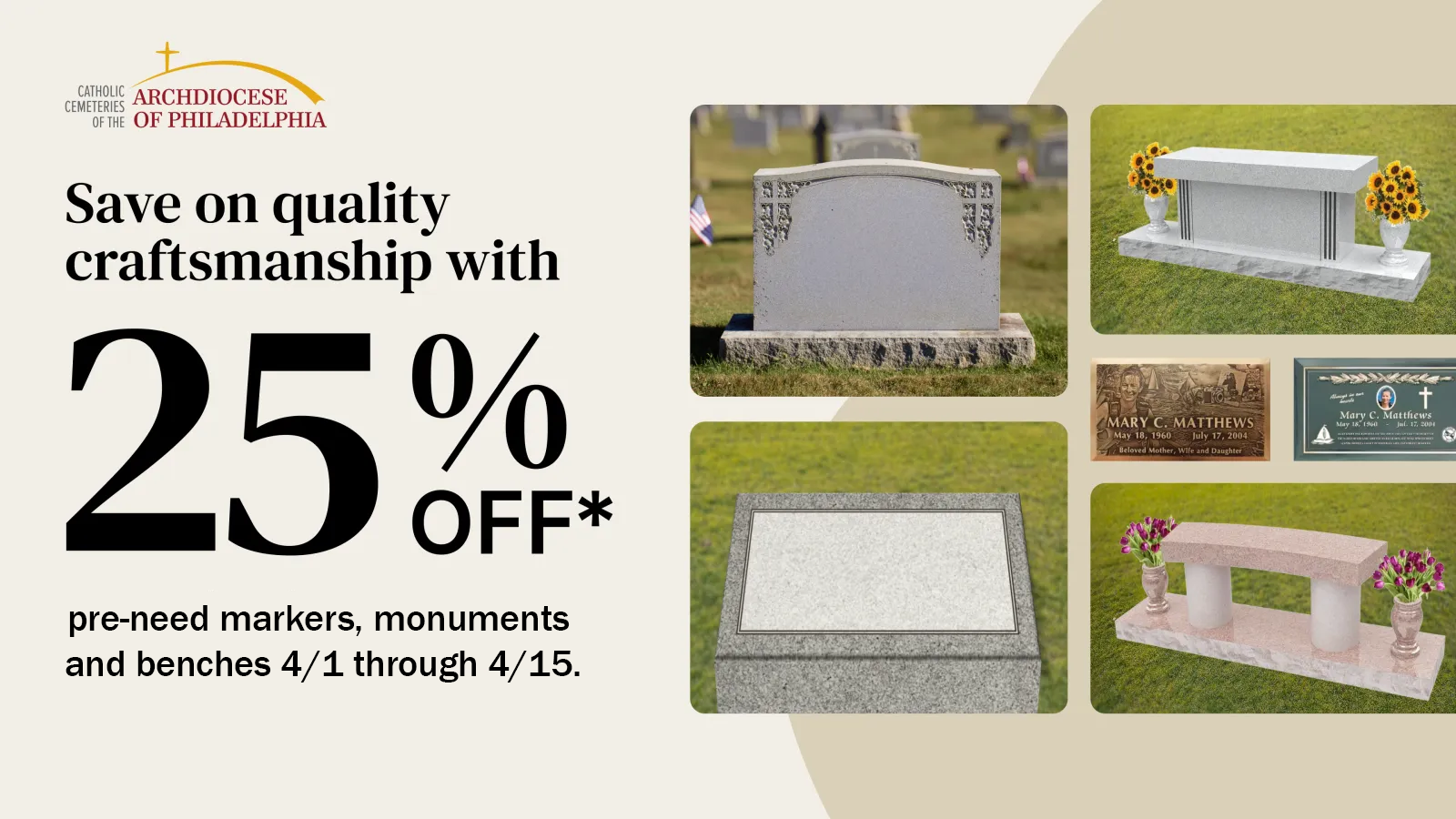
Are Eulogies Allowed at Catholic Funerals?
Eulogies are one of the many ways that people choose to remember a loved one who has passed away. Speaking at a funeral and telling the story of the deceased — recounting their accomplishments in life, their favorite activities, noteworthy stories that illustrate the kind of person they were — is common and often cherished. Doing so in remembrance of a deceased loved one can help celebrate that life and provide comfort for the bereaved.
Yet there is a time and a place for the eulogy. In fact, in some situations, it may even be inappropriate to eulogize someone due to the circumstances surrounding their funeral. If the deceased was a member of the Roman Catholic church, for example, the practice of a eulogy during a Catholic funeral Mass is officially not allowed. But why is there no eulogy at a Catholic funeral? Are there alternate ways to celebrate the life of a loved one or even exceptions to this rule? Read on to understand.
No Eulogies at Catholic Funerals - Homilies Are More Appropriate
If you're asking if you can give a eulogy at a Catholic funeral, the answer is relatively straightforward: During a funeral Mass, eulogies are considered inappropriate. The reasoning behind this is that the Mass is a specific liturgical rite that needs to be followed closely according to Catholic guidelines, and there's no room for eulogies under those guidelines. Specifically, anything said during Mass must have the express purpose of being related to the teachings of the Catholic church, and a eulogy that focuses exclusively on the life and times of the deceased does not meet that requirement.

However, this does not mean that there can't be words of remembrance spoken of the deceased in context with their relationship with their faith and how it intersected with the teachings of the Catholic church. Rather than a traditional eulogy, Catholic funerals are generally known to only allow words that represent an interpretation of the deceased's life by reference to the suffering, death, resurrection, and ascension of Christ in the form of a homily. Additionally, a family member or close friend cannot speak these words - instead, they must come from the lips of a priest or a deacon. It should be noted this stringent guideline is not universally followed, as some churches are more relaxed about this requirement.
Readings from Scripture - An Alternative
With generally no eulogies permitted at Catholic funerals, and homilies serving as the exclusive purview of the priest or deacon leading a funeral Mass, it may feel like there is no room for loved ones to speak during a Catholic funeral. However, there is one alternative that may be something to consider, and that takes the form of selecting specific Scripture passages to read during funeral services.
There are several readings that occur during any Mass, and while in a non-funeral mass either the priest or a lector will do these, during a funeral mass friends and family of the deceased are welcome to do so, as long as the Bible passage is an appropriate choice. This can be an excellent option if the deceased had a favorite passage from the Old or New Testament, or left instructions for a particular reading during their funeral. Though it is obviously still not the same as a eulogy.
When Is a Eulogy Appropriate?
While we've discussed that no eulogies are generally allowed at Catholic funeral Masses, that doesn't mean you can't eulogize the deceased at a different step in the process. While there are some more conservative churches that require any eulogy to be focused on words of remembrance of the faith of the deceased, many will tell grieving families that they can absolutely give a eulogy during a Catholic funeral, as long as it occurs outside the confines of the funeral Mass in church.
Under these circumstances, the most appropriate time that you can give a eulogy at a Catholic funeral is during the Vigil, the liturgical rite that occurs prior to the funeral Mass. Very similar to a wake or a viewing, the Vigil is an opportunity for family, friends, or anyone else who wishes to pay their respects to the deceased to attend a gathering in their honor. Traditionally, Vigils are prayer services led by a priest or deacon, but anyone with the requisite knowledge of the necessary prayers can lead the services.
A Celebration of Faith
It's natural to feel the need to remember someone who has passed in a public setting. The eulogy accomplishes this, as well as provides space for friends or family members to speak on behalf of their deceased loved one, which is of course a crucial part of the grieving process. Therefore, the eulogy absolutely has its place during funerals. It's just when the eulogy might conflict with the purpose of a Catholic funeral Mass that things may need to be adjusted. This is because a Catholic funeral is a celebration of the faith of the deceased and the focus of the words spoken during the funeral need to be on the subject of that faith.
This means that secular or worldly concerns are meant to take a back seat during this time. As a result, in many circumstances, a traditional eulogy is simply inappropriate in this context. This does not mean that your loved one can't be remembered during a Catholic funeral Mass by a homily that highlights their faith or by a selection of Bible passages that held special meaning for them or that are specifically appropriate. Also, remember that while some churches may still prefer you not to do so, it is often much more appropriate to put time aside at a Catholic Vigil for eulogies.
Remember: Catholics believe that the mercy of God raises the faithful into a state of grace and eternal life after death. This means that the purpose of a Catholic funeral is intended to be a celebration of an individual's salvation through their beliefs, not necessarily a celebration of their life. Keep this important distinction in mind when thinking about what you want to be said on behalf of a deceased loved one during a Catholic funeral Mass.
While you're here, please take a moment to consider that one of the greatest gifts we can give our loved one when we're gone is to remove the stress of planning a funeral for us. We can do this by planning and even pre-paying everything in advance.
In this way, you can select all the pertinent details, even down to the inscription on your headstone, years if not decades in advance, and save years if not decades of inflation-related cost increases, thereby sparing your family the additional stress of having to make important decisions while already grieving.

